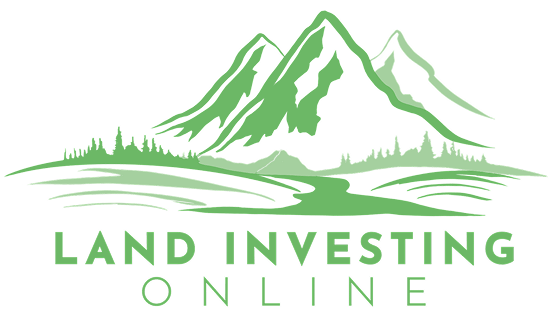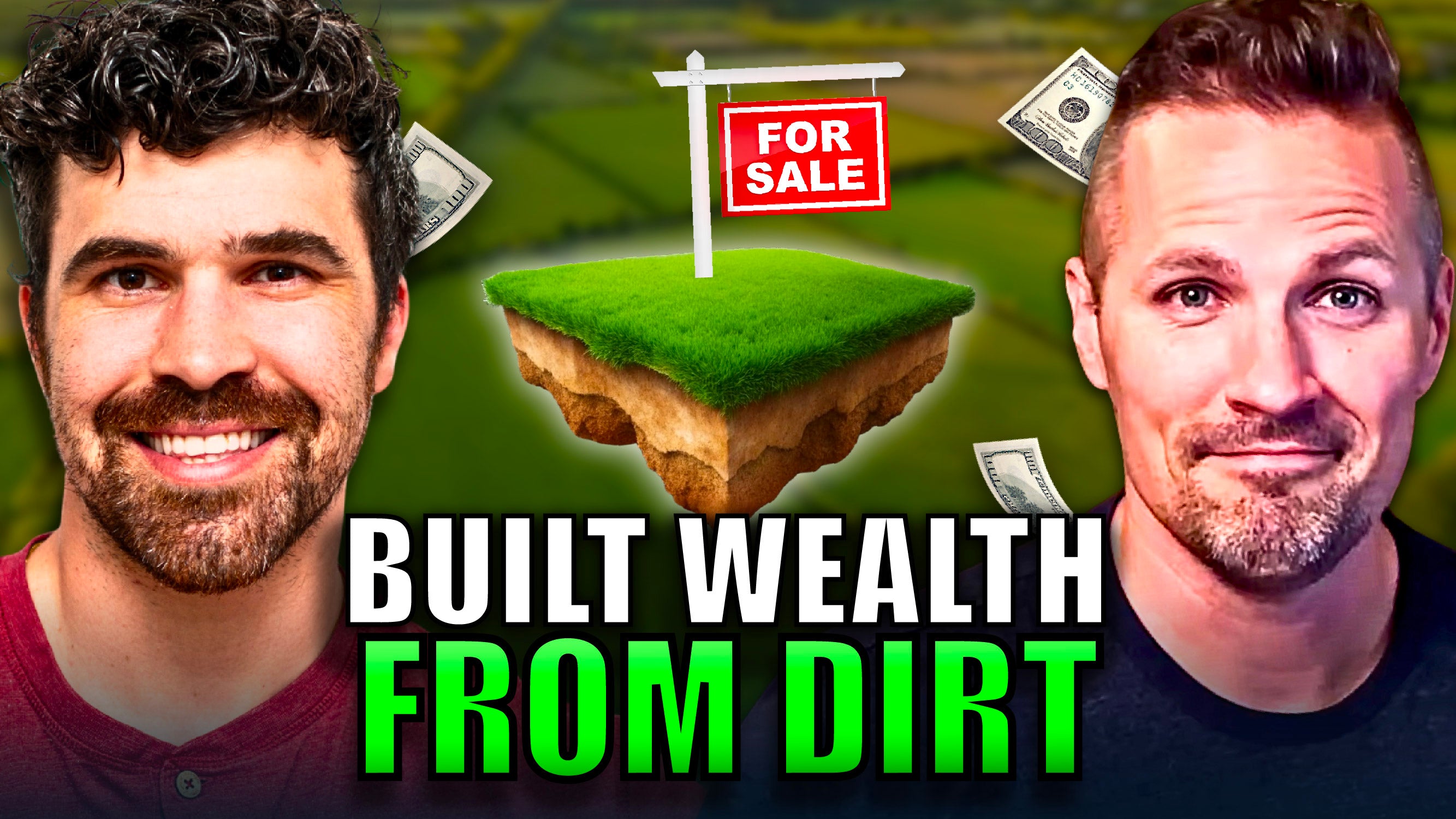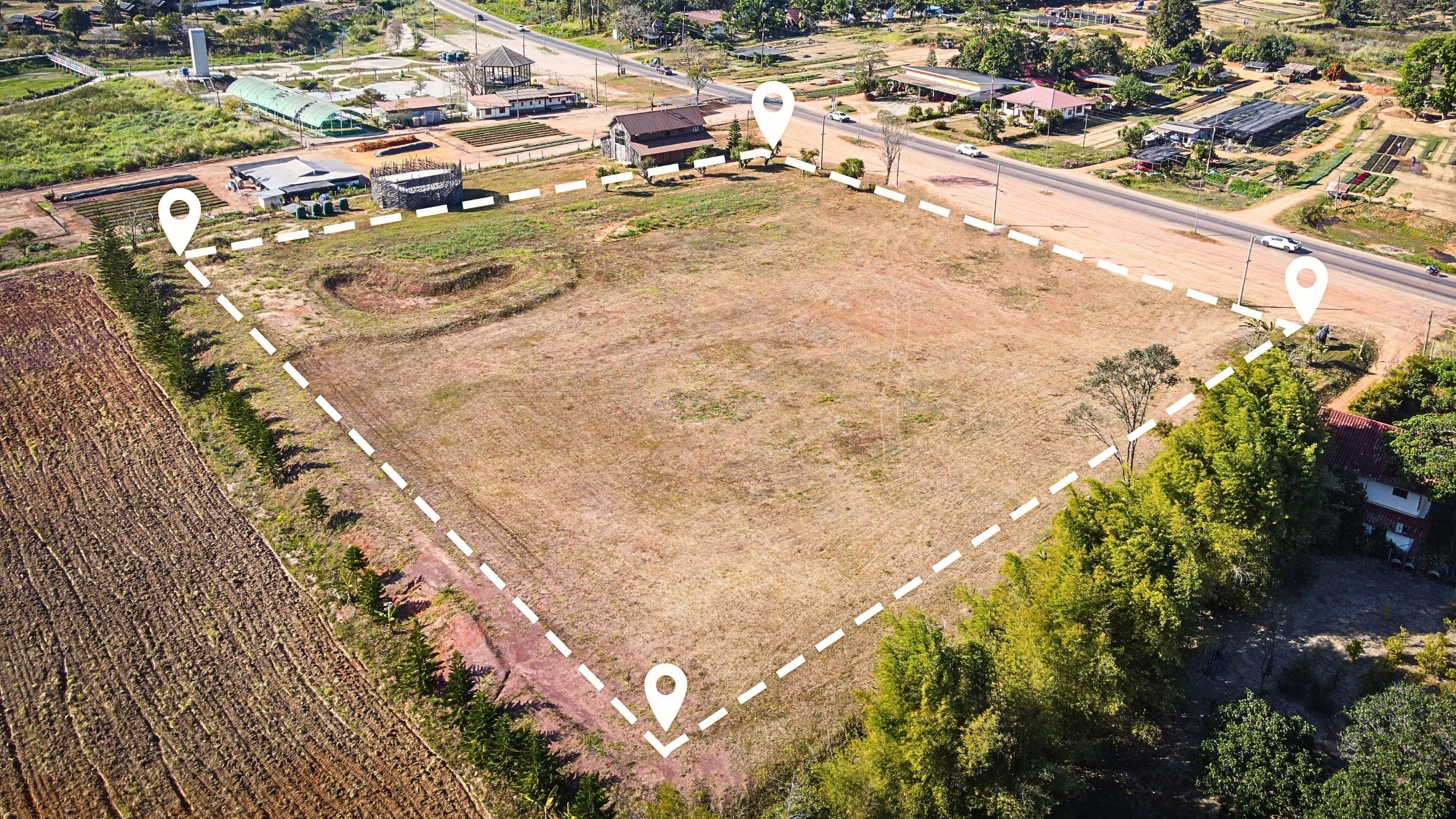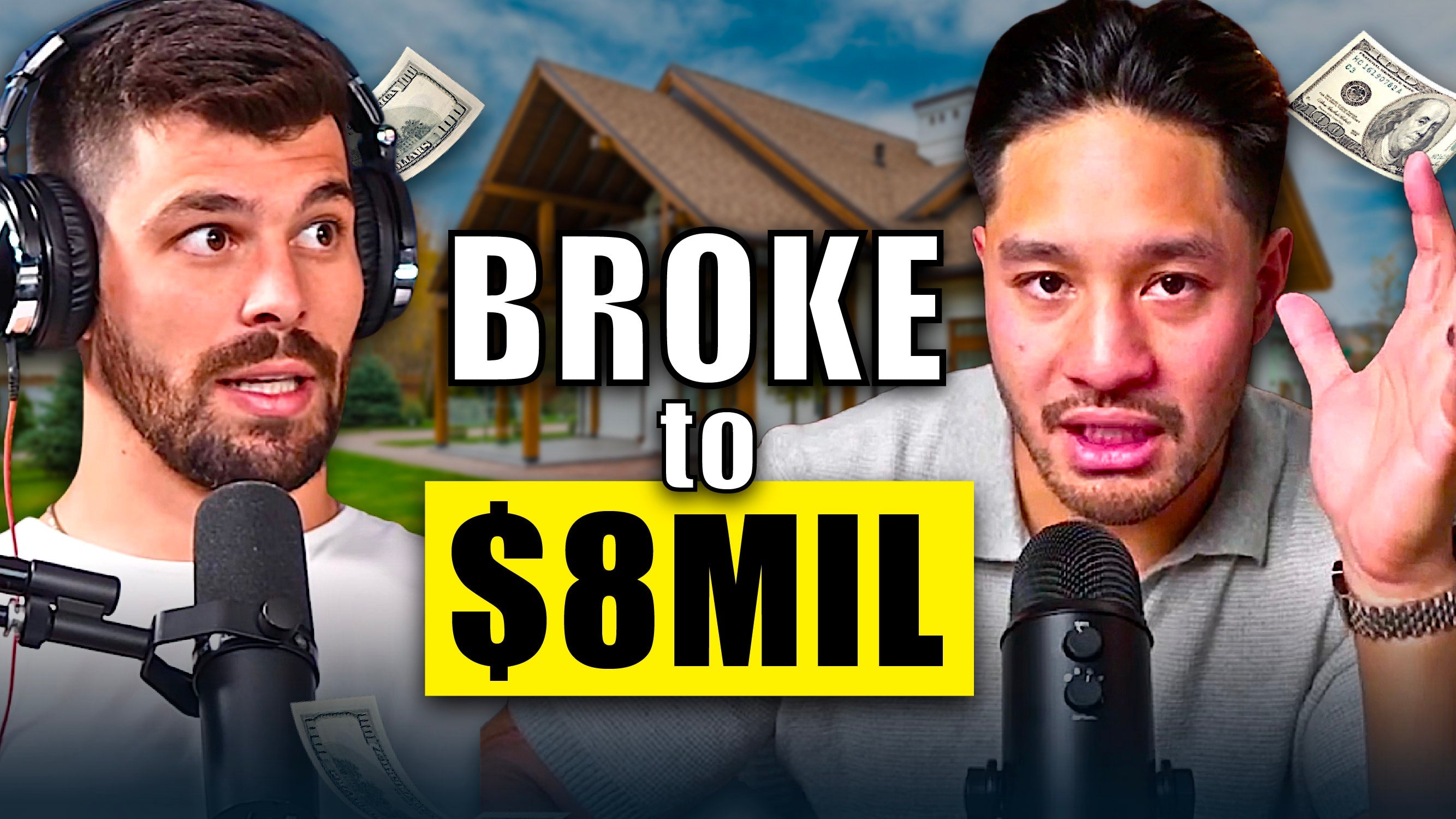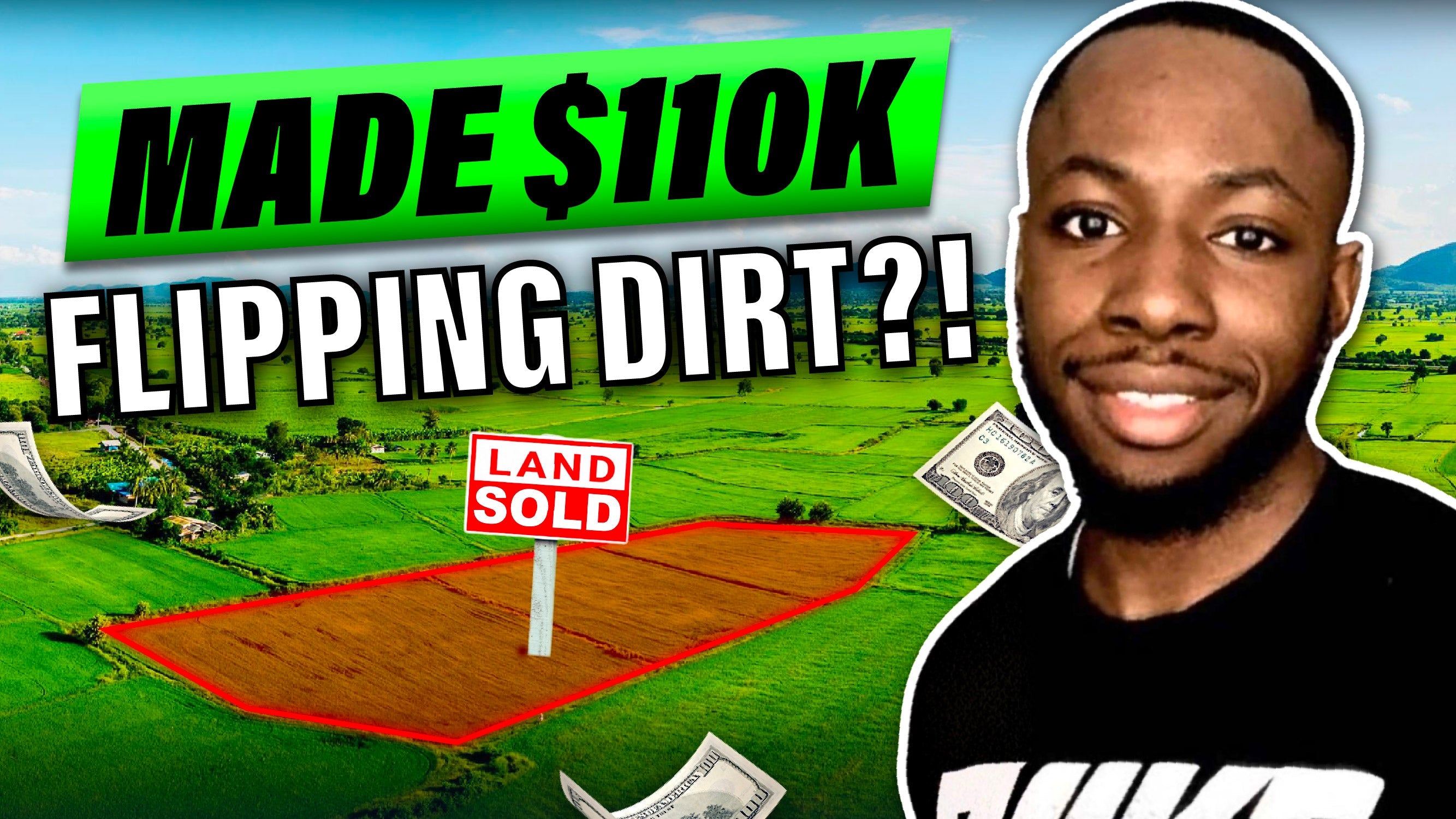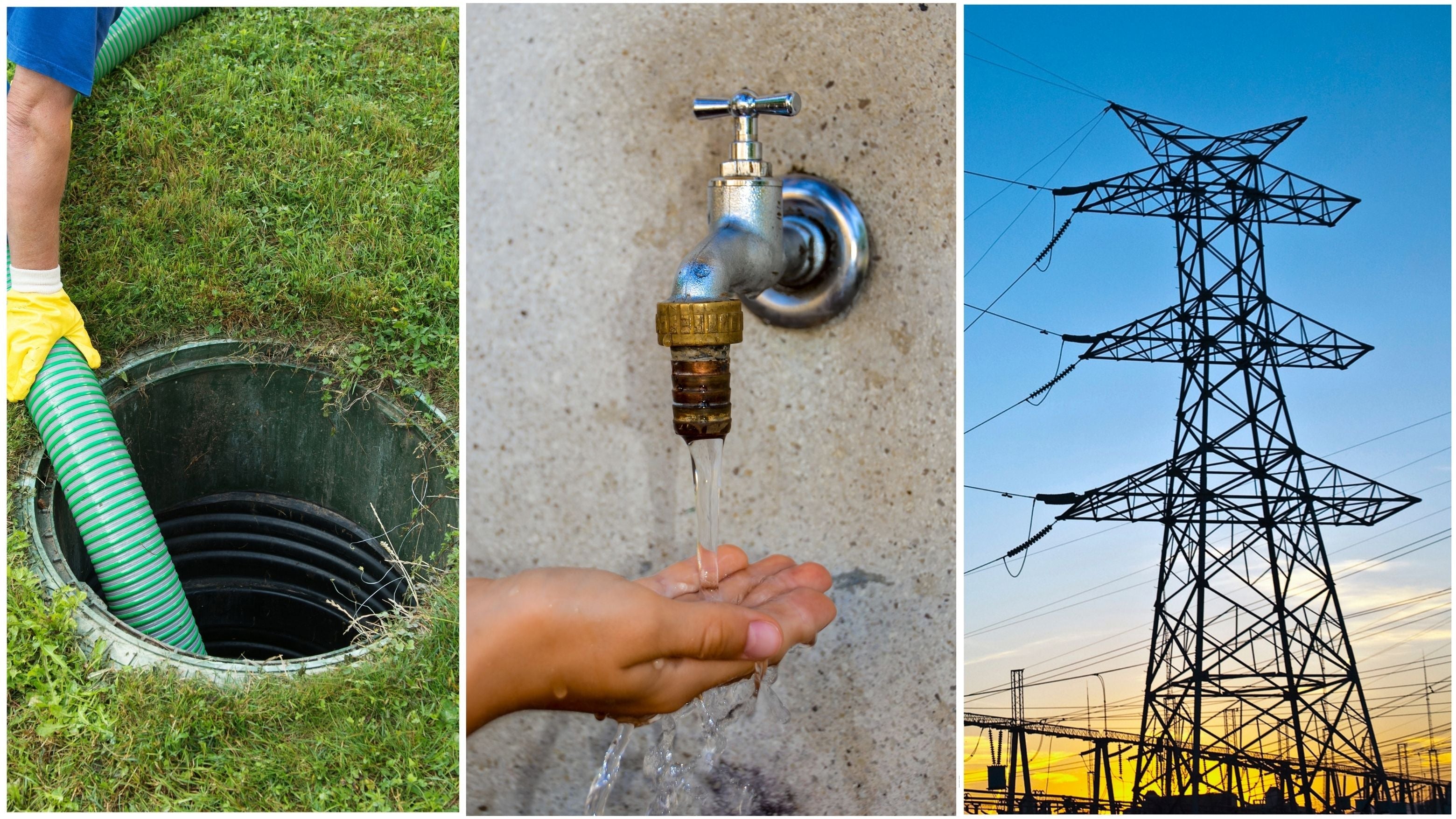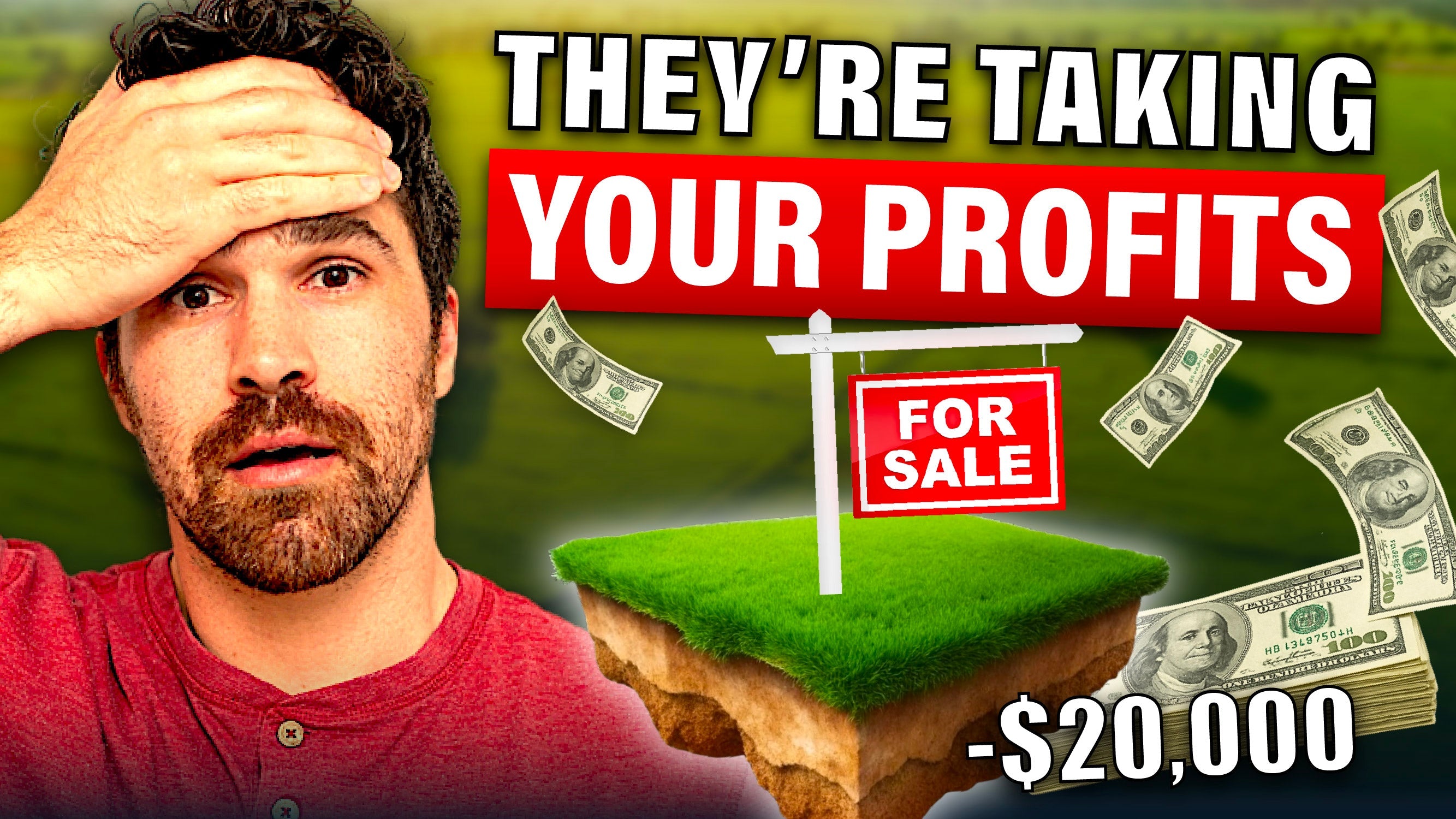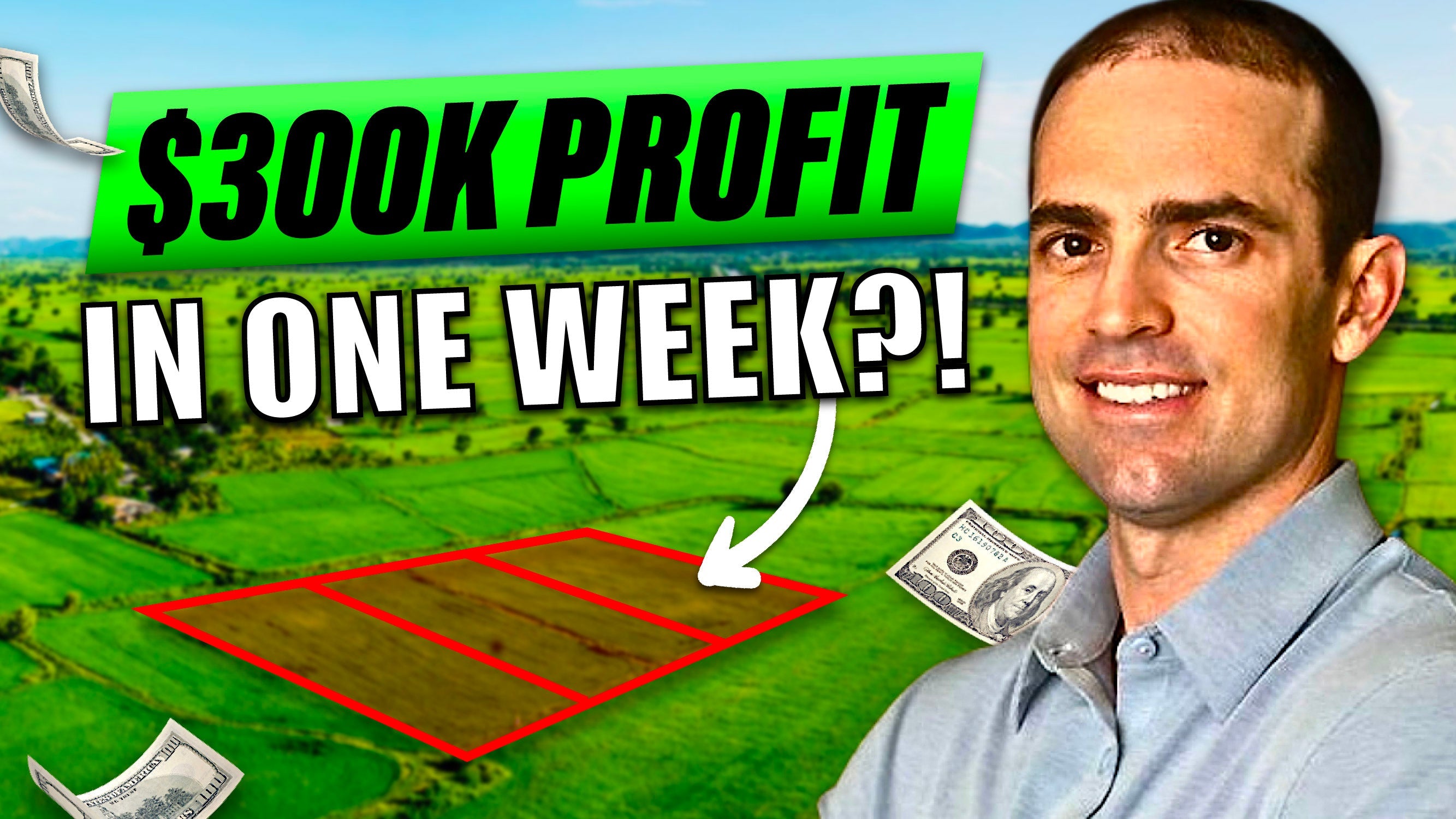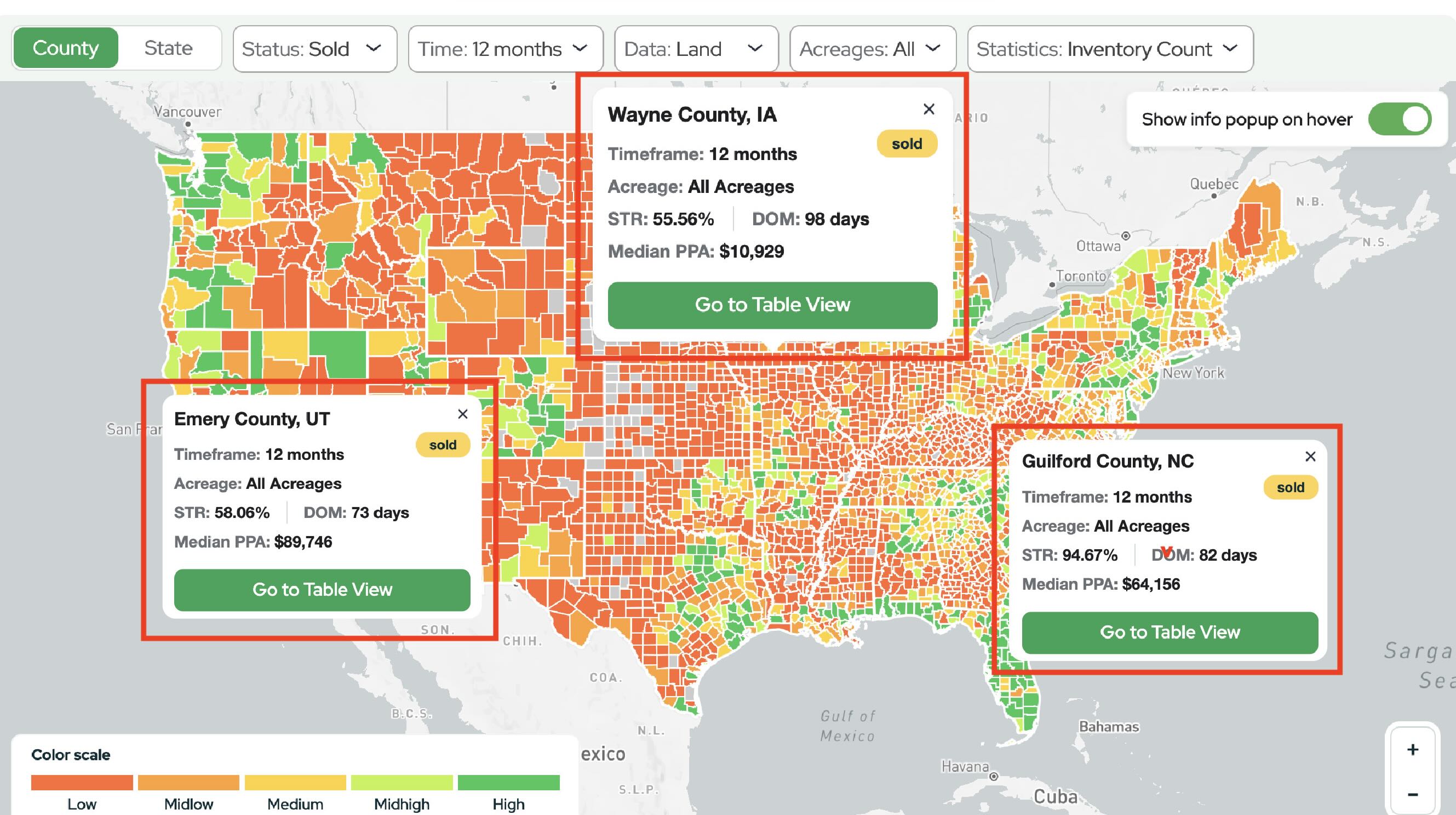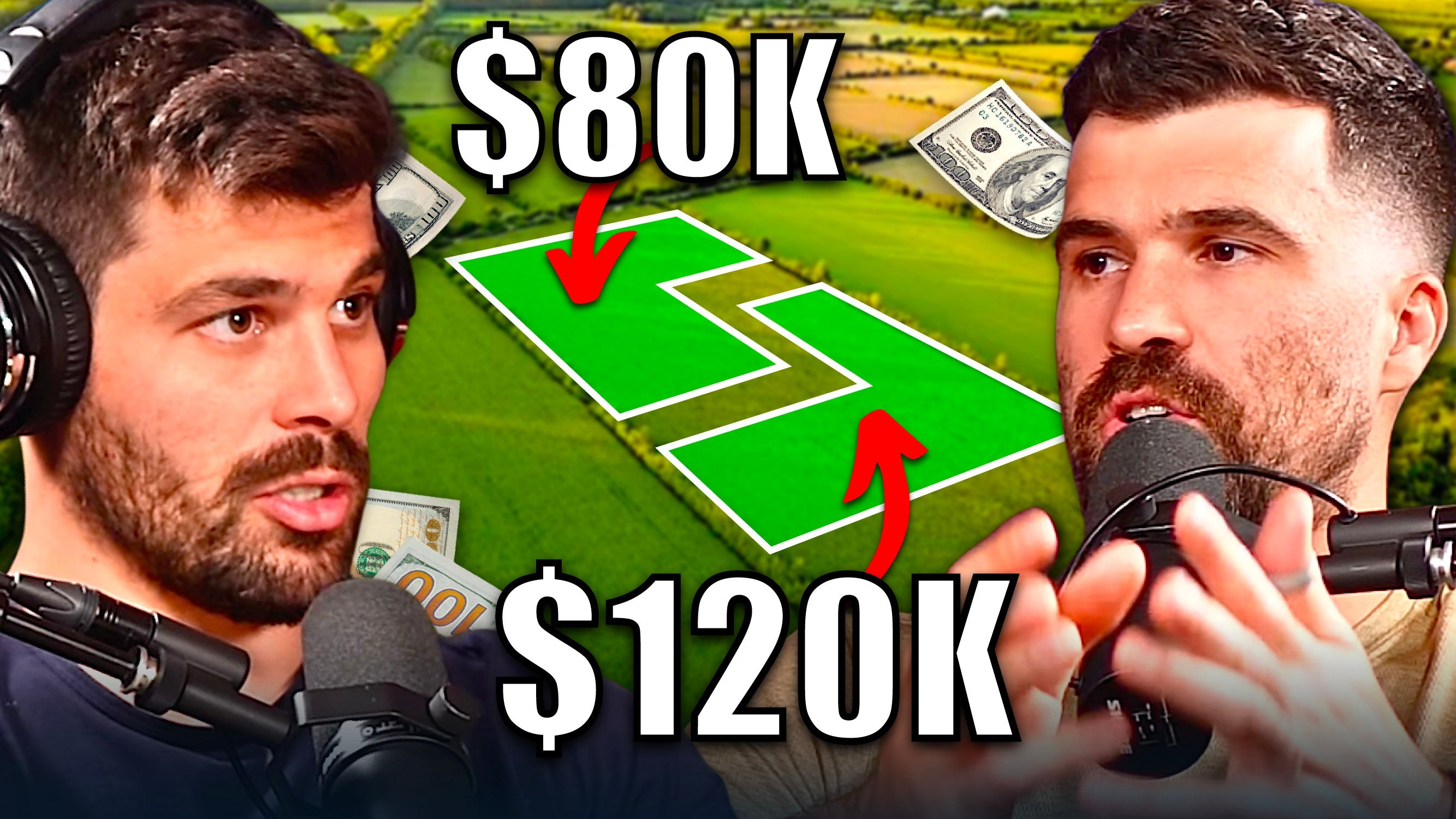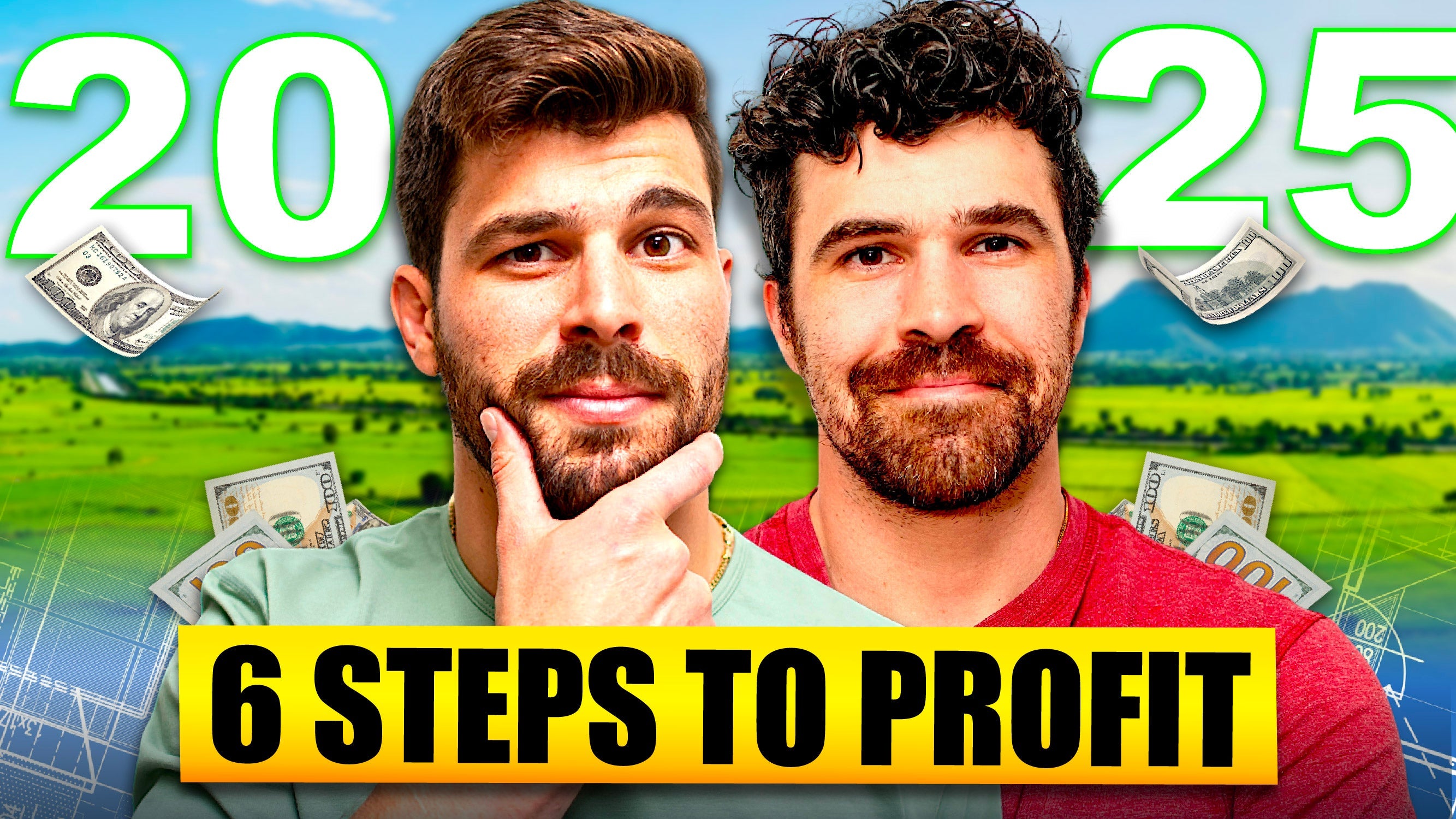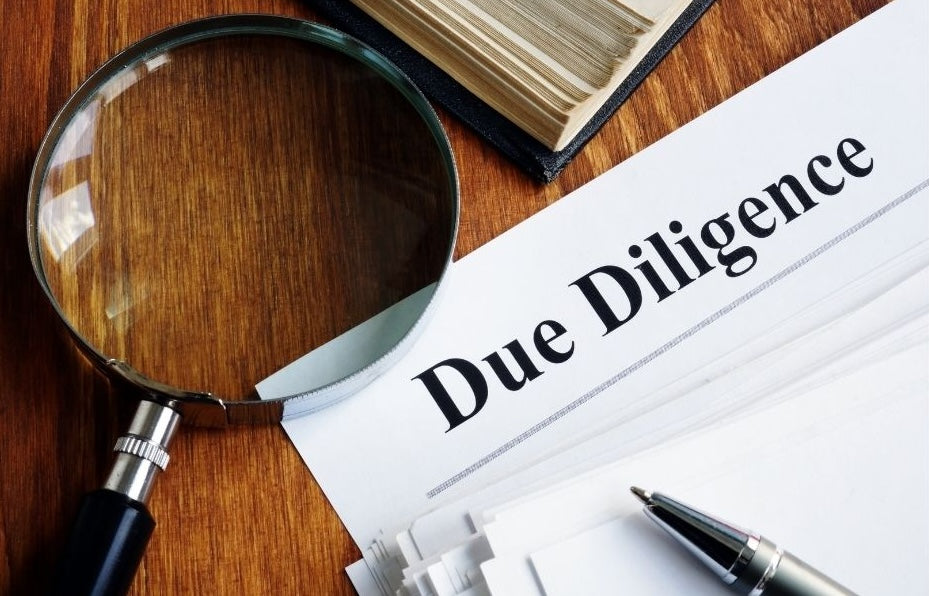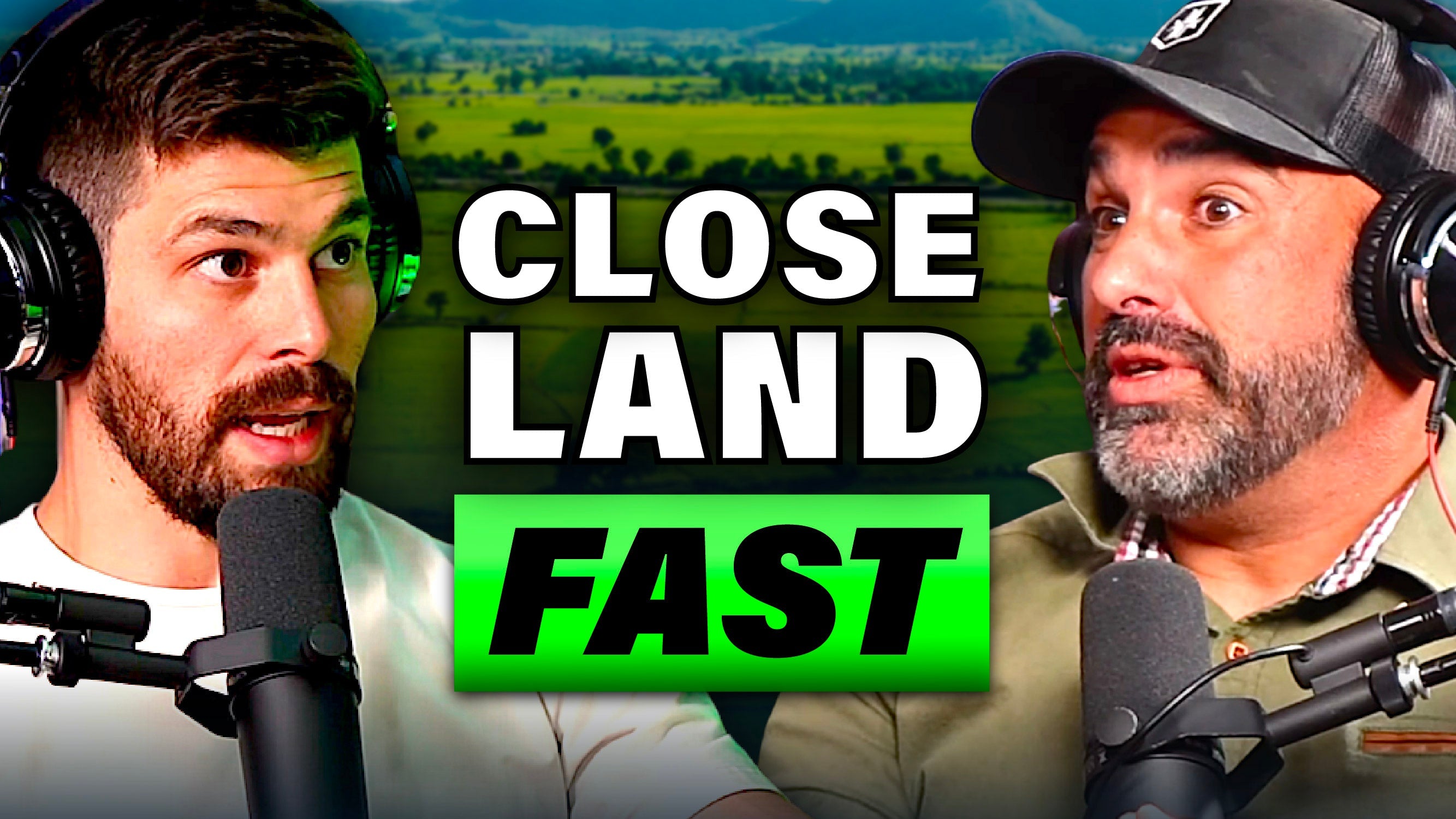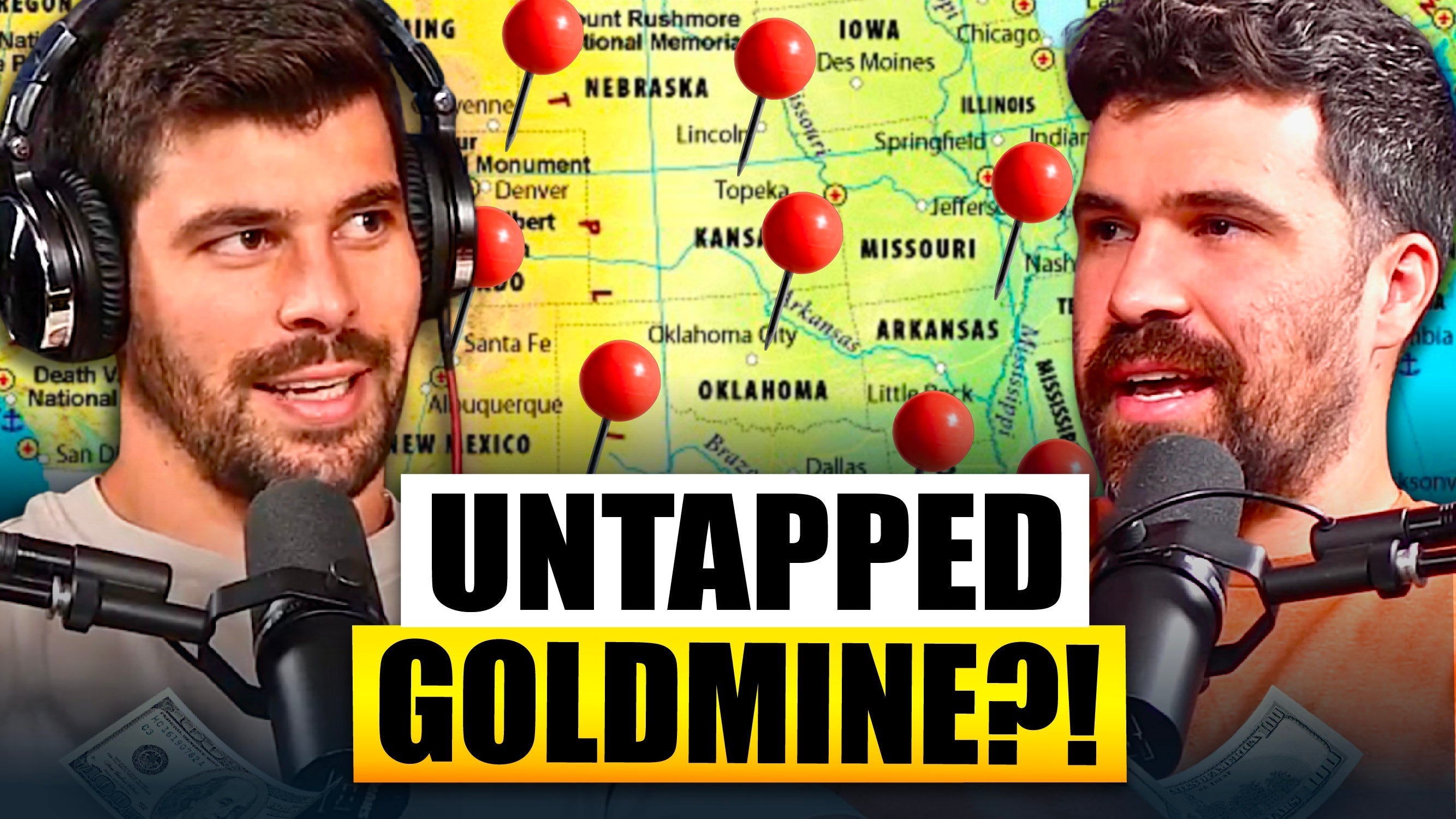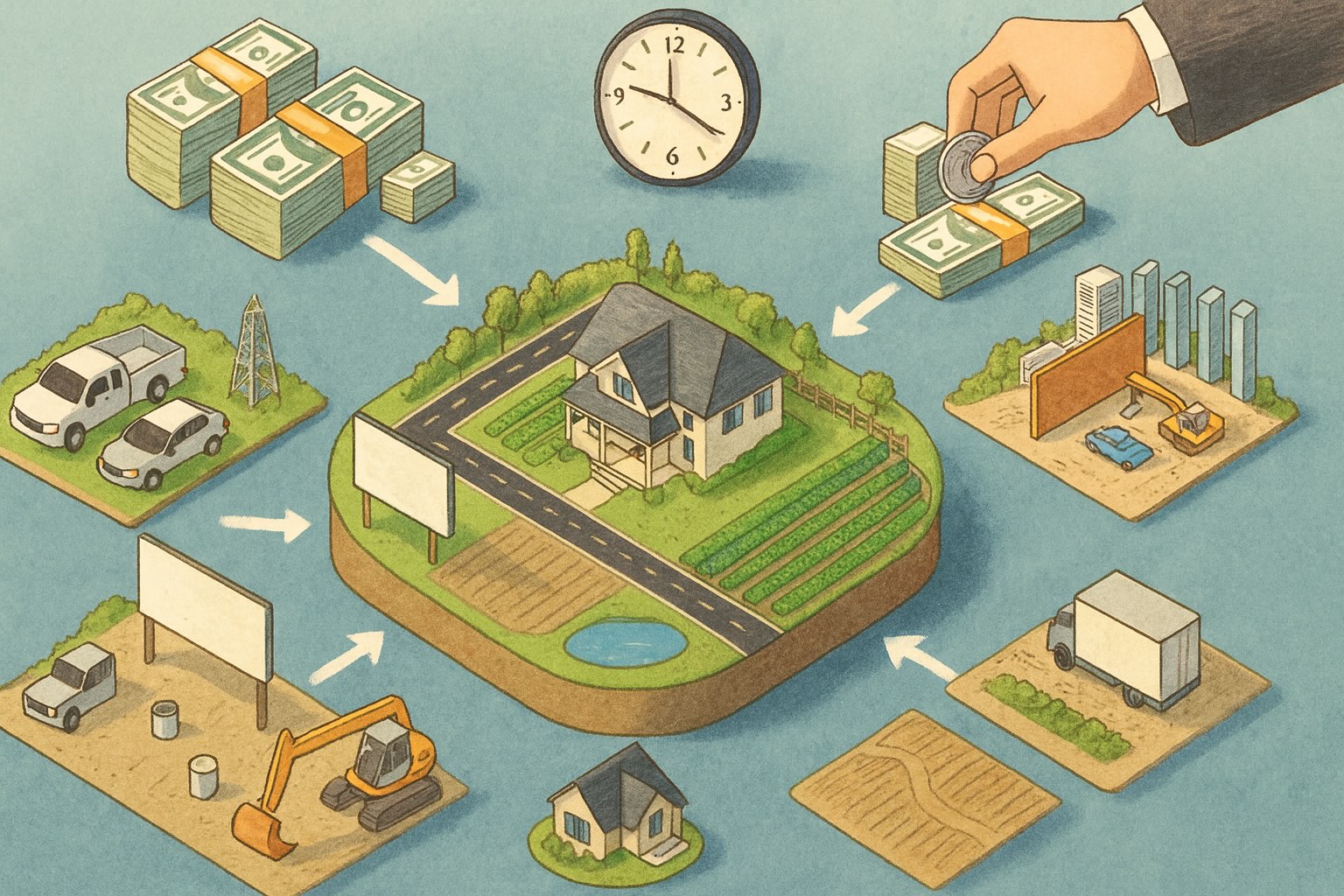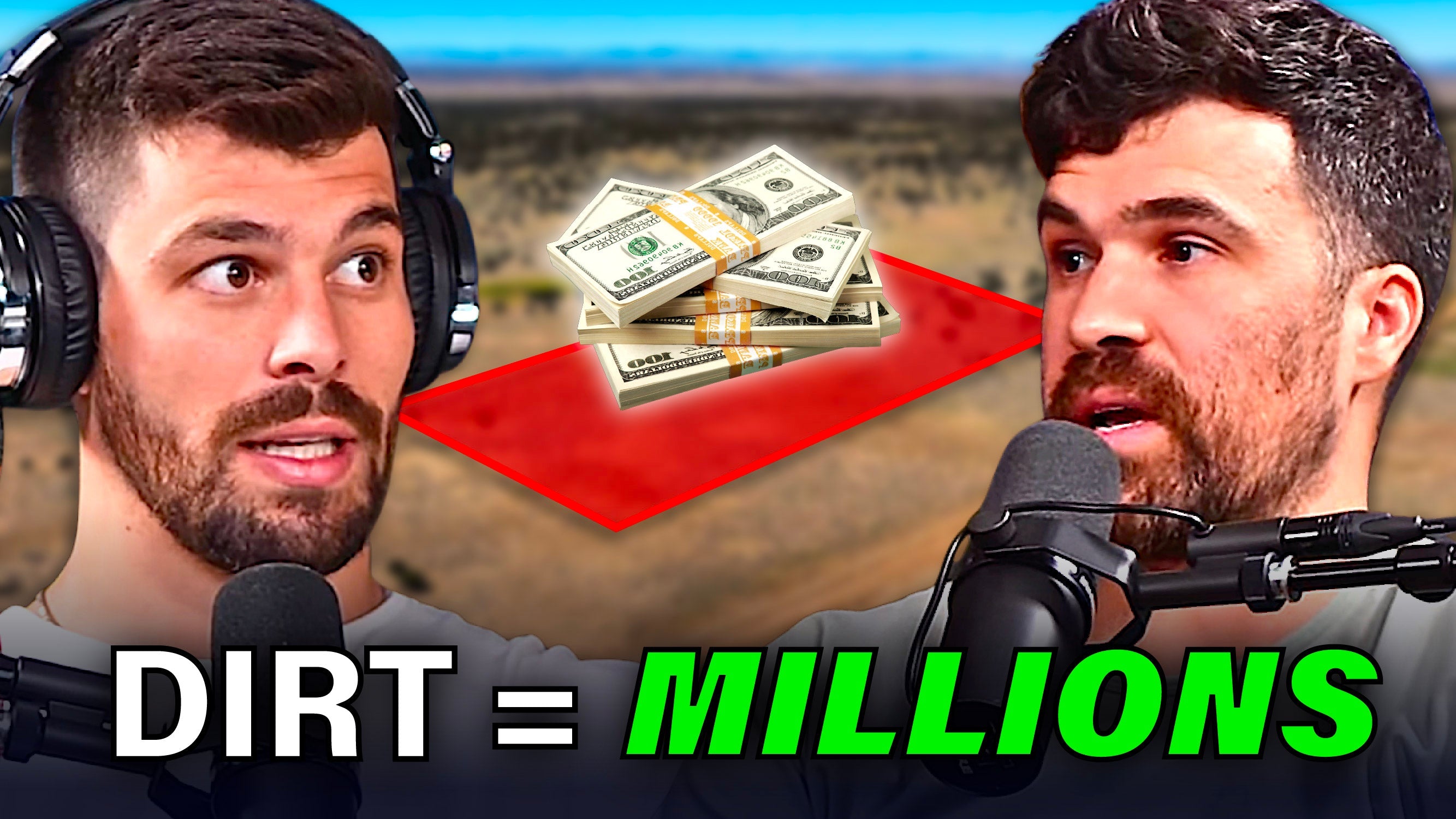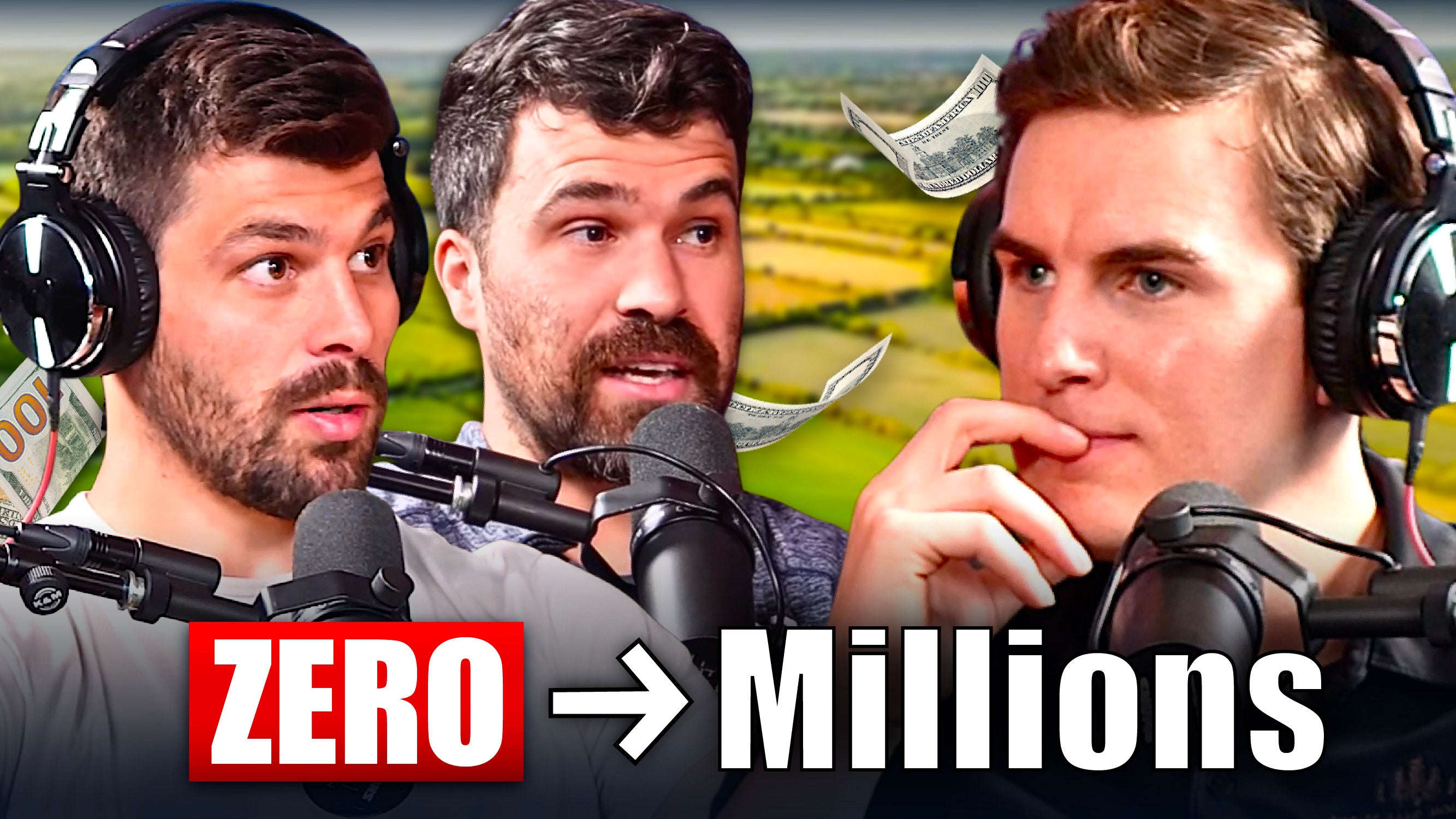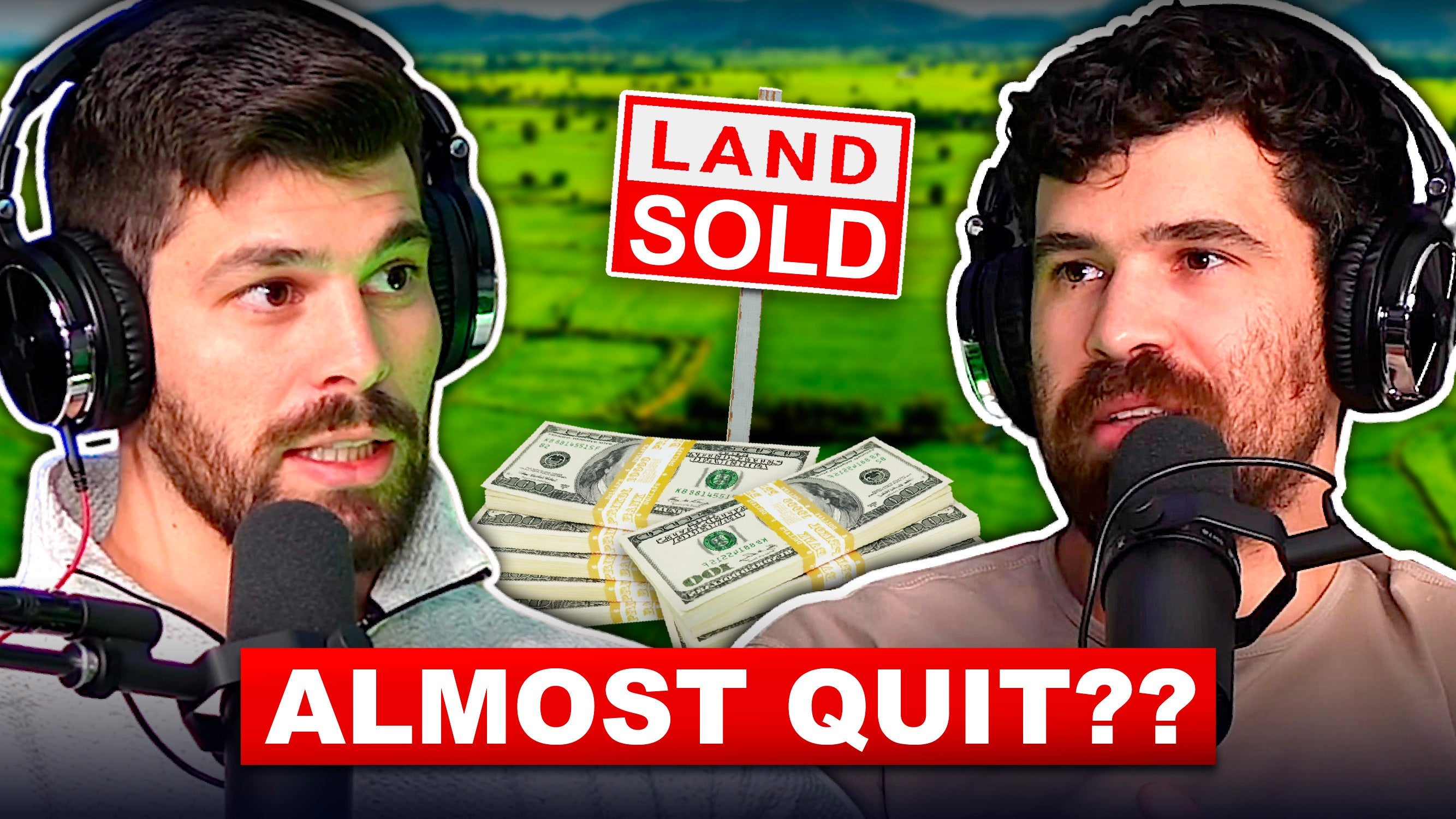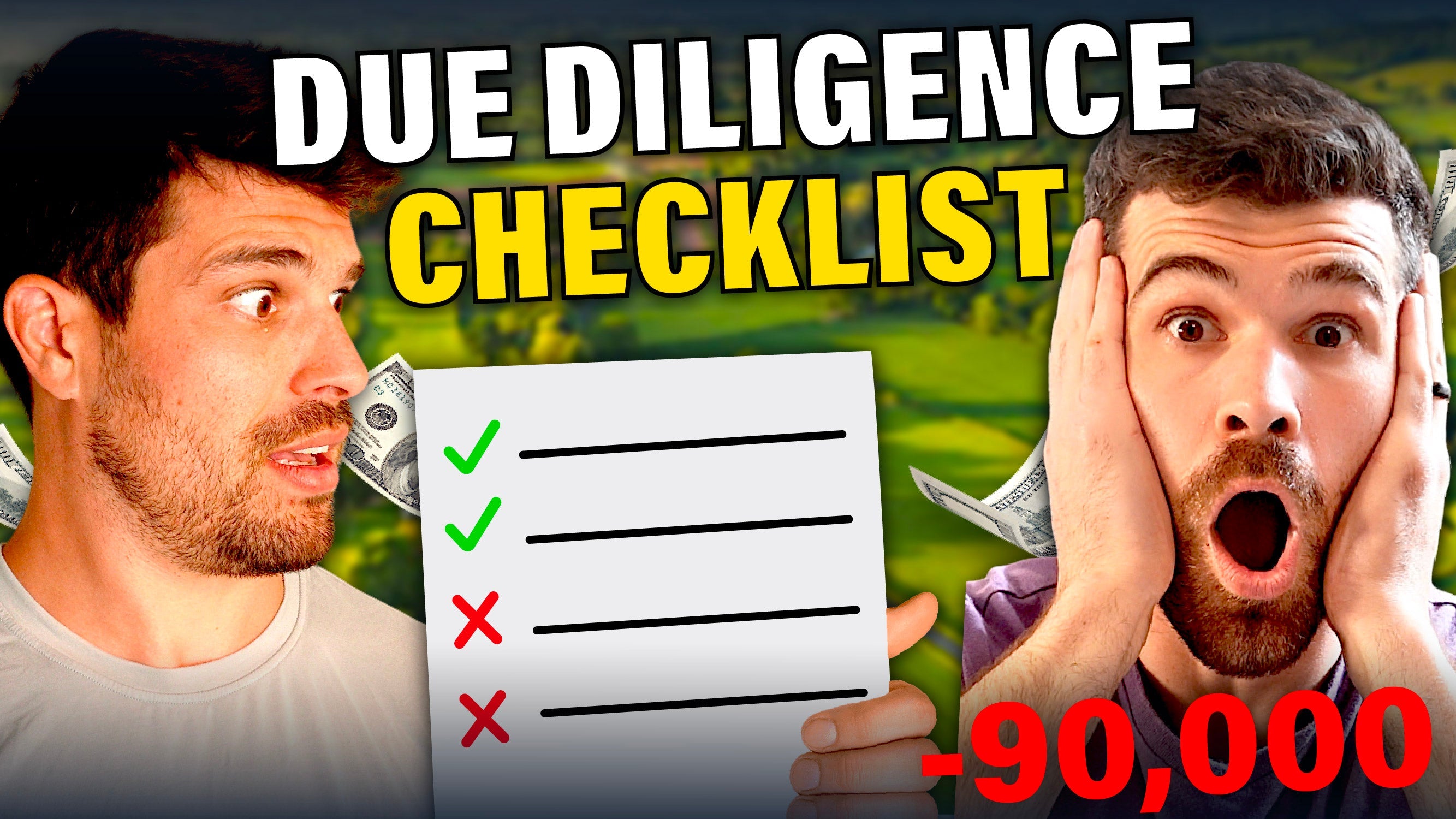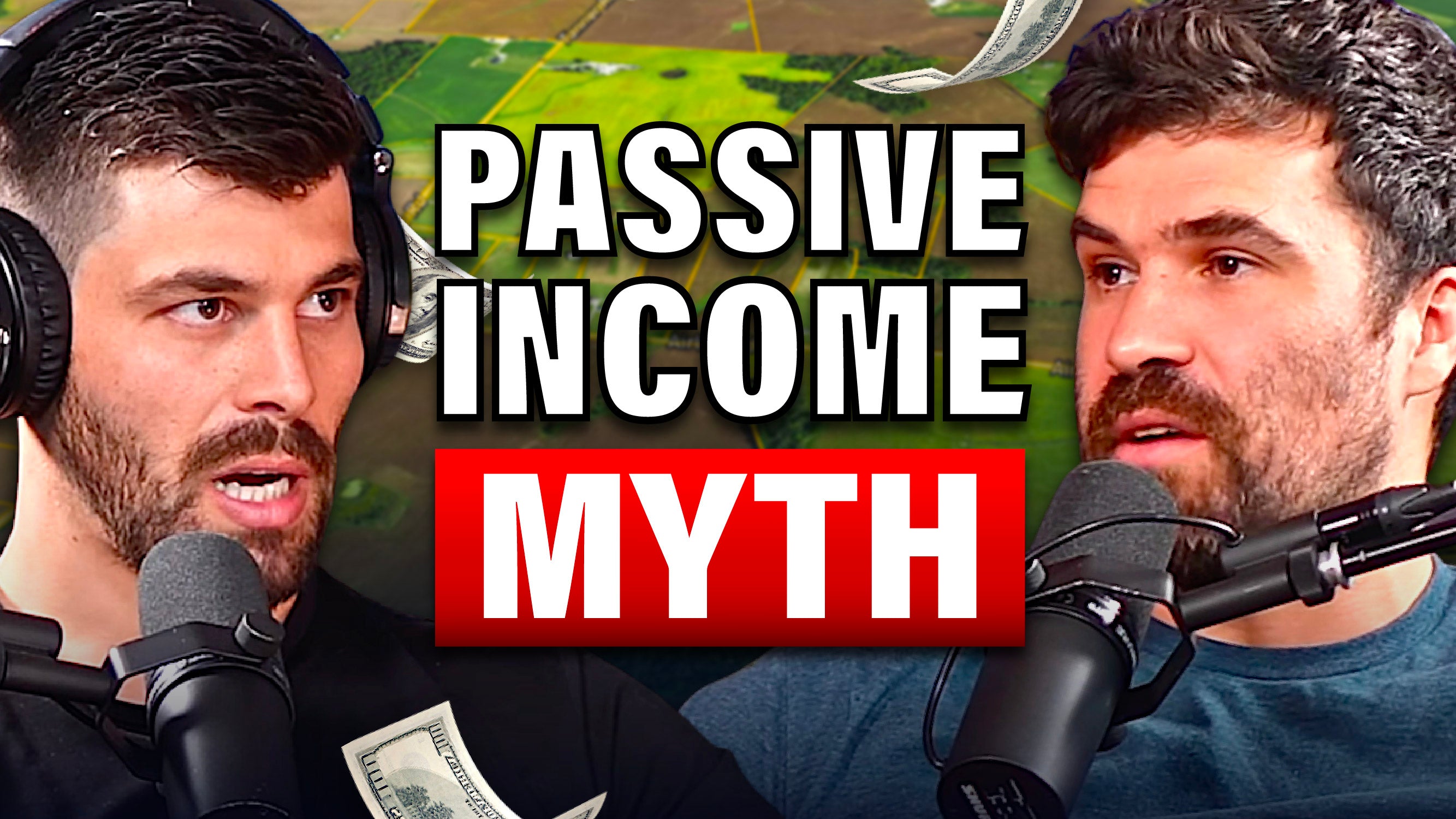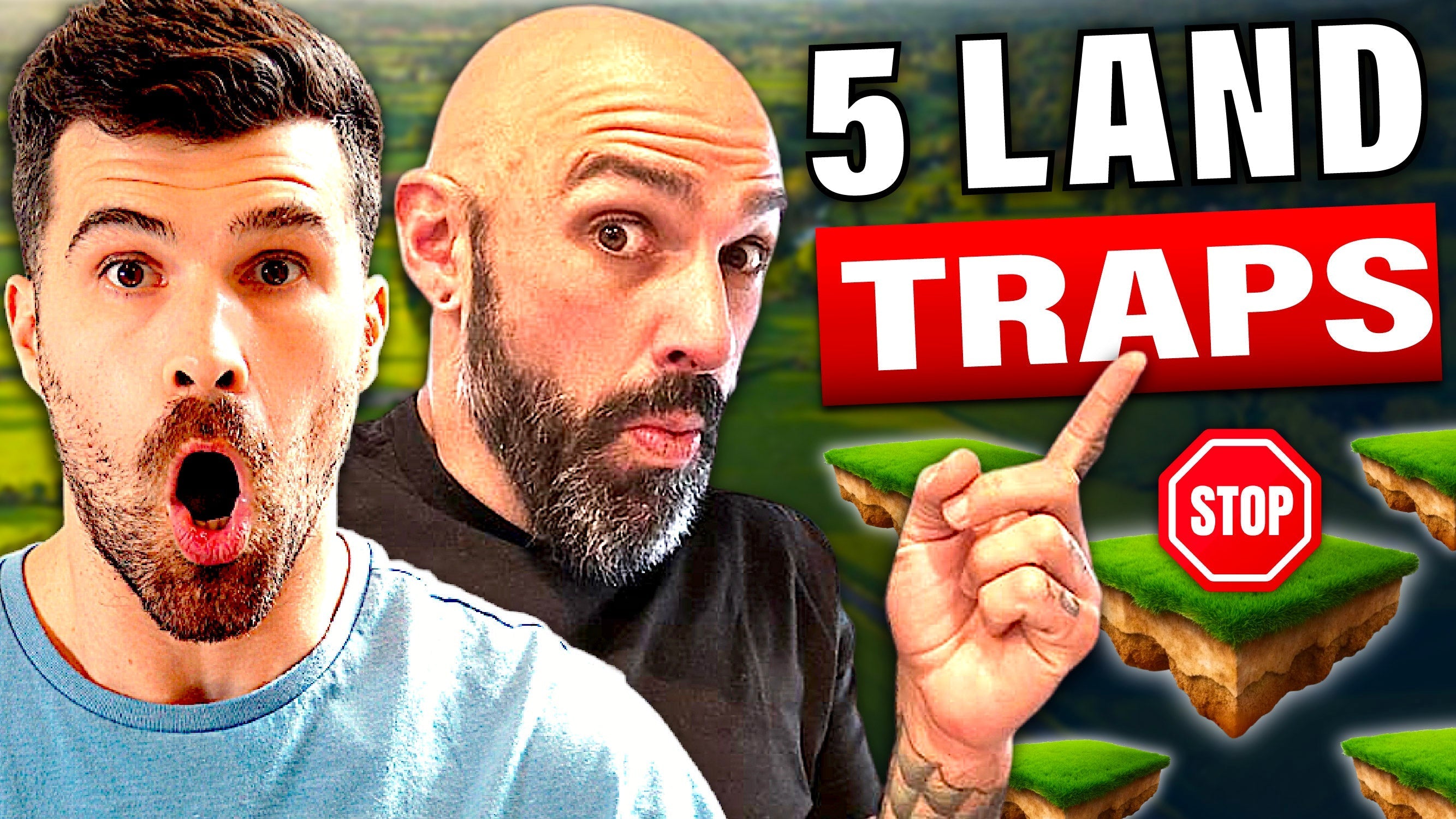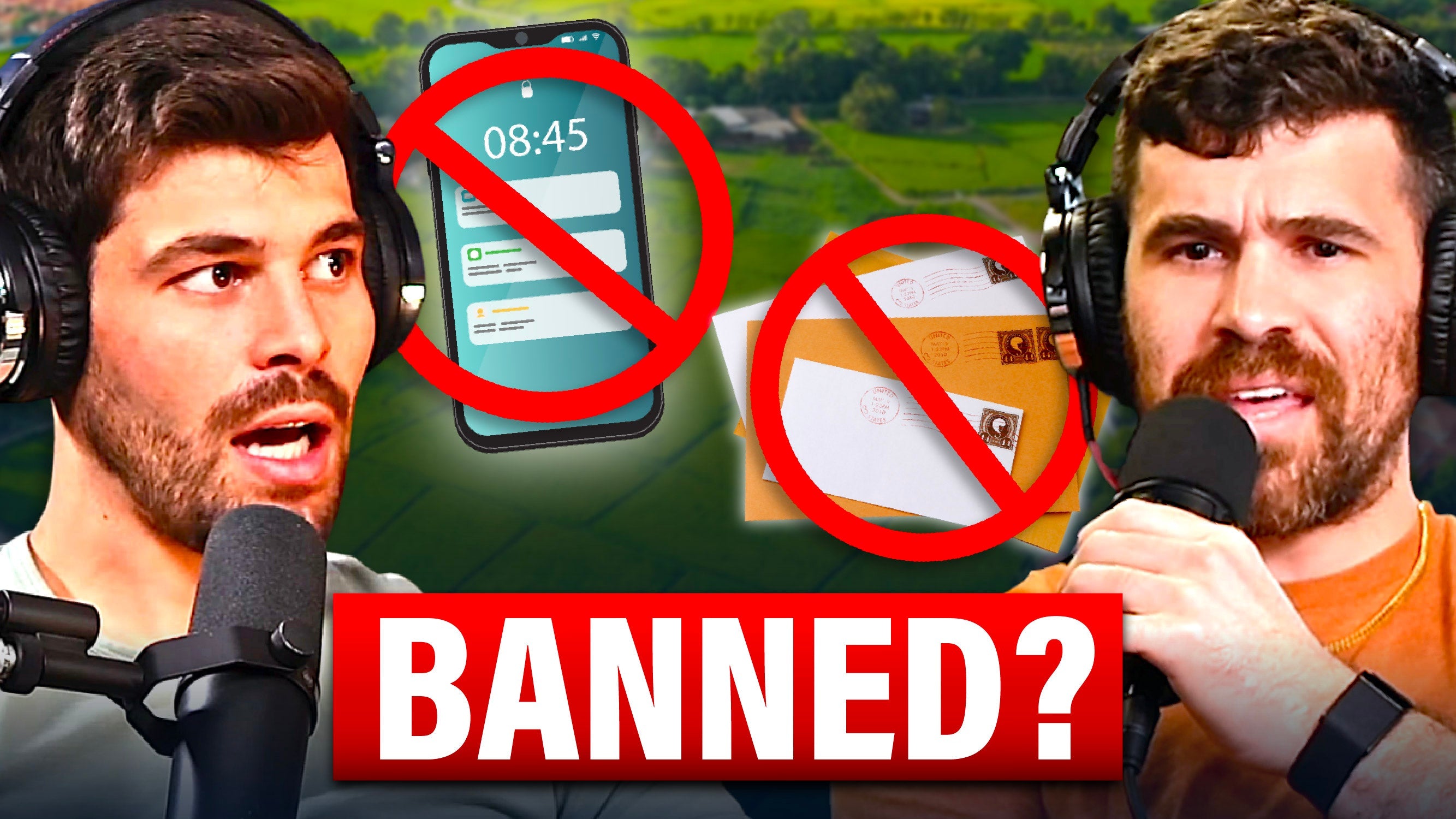When and Why You Should Hire a Real Estate Agent to Sell Your Land

Featured
Texting for Land Deals: The Game-Changing Strategy Every Investor Should Know
How To Subdivide Land Using Land.id (Formerly Mapright)
How to Get Started In Real Estate Investing With No Money
How to Flip Land While Working a FULL TIME Job
How to Remove Sloped Land & Save Thousands on Land Flipping Marketing!
When and Why You Should Hire a Real Estate Agent to Sell Your Land

Selling land is a unique challenge—one that requires a specialized approach and, often, the expertise of a real estate agent who understands the nuances of the market.
Unlike selling a house, where agents are more commonplace, finding the right professional for your land deal can significantly impact the outcome of your sale.
For experienced land investors like Dan and Ron Apke, the decision to work with real estate agents evolved as their business grew. Initially hesitant to pay commissions, they realized the value of partnering with skilled land agents as their properties increased in value and they established themselves in specific markets.
The key takeaway? Hiring the right agent—one who understands land sales—can make a world of difference.

Join our free Discord channel!
Engage & network with thousands of new and experienced investors, participate in weekly deal reviews, and more!JOIN
Why You Should Consider Hiring a Land Realtor
The advantages of hiring a real estate agent for land sales are clear:
-
Expert Market Knowledge: A seasoned land agent understands local trends, helping you price your property competitively while ensuring it sells quickly.
-
Time Savings: They manage inquiries, negotiations, and showings, freeing you to focus on other aspects of your business.
-
Higher Sale Prices: Skilled agents often secure better offers than you could get on your own.
-
MLS Exposure: Agents can list your property on the MLS (Multiple Listing Service), attracting serious, qualified buyers.

Of course, there are downsides to consider, too:
- Commission Fees: A 6% commission on a $100,000 property is $6,000 out of your pocket.
- Risk of Poor Performance: Not all agents are equally capable. Choosing the wrong one can delay your sale.
- Contractual Obligations: Signing a six-month agreement locks you in, even if the agent doesn’t deliver.
For Dan and Ron, the decision to work with an agent usually depends on the property’s value. Properties under $50,000? They sell those themselves via platforms like Facebook Marketplace or Land.com. But for properties worth $50,000 or more, hiring the right realtor is almost always worth the investment.
How to Find the Right Realtor for Your Land Sale
Not all realtors are created equal, especially when it comes to land. Selling a plot of land requires different skills than selling a home, particularly in rural areas or for large acreages. Here’s how to identify the best fit:
Responsiveness: Start by calling multiple agents. If only a handful return your call, those are your top contenders.
Track Record: Ask how many land deals they’ve closed in the last year. Are they specialists or dabblers?
Proactive Approach: Assign them small tasks, like evaluating your property or presenting a marketing plan. Do they follow through efficiently?

Here are four key questions to ask when vetting a realtor:
- “What percentage of your business is focused on land sales?”
- “How quickly can you list the property?”
- “Do you work with cash buyers or primarily handle loan-based transactions?”
- “How do you navigate contingencies like perk tests or surveys?”
A good realtor should align with your business model. For example, if your strategy revolves around fast, low-contingency cash deals, the agent should support that approach rather than overcomplicating the process.
Building Long-Term Relationships
Establishing strong relationships with real estate agents can be a game-changer for your land investing business. These partnerships often result in faster sales, smoother transactions, and invaluable problem-solving support.
Dan and Ron have seen firsthand how a great agent can step in to resolve issues, such as avoiding delays caused by unnecessary surveys or title company disputes.

Should You Use a Realtor?
If you’re new to land investing, here’s the general rule of thumb:
-
Properties under $50,000: DIY the sale through online platforms to save on commissions.
-
Properties over $50,000: Start interviewing agents. A qualified realtor can help you maximize profits and streamline the process.
Take your time to vet agents thoroughly. Assign them small tasks initially to test their capabilities before committing to a contract. The right agent can become a trusted partner who helps you close deals quickly and scale your business effectively.
By choosing wisely, you’ll not only save time and effort but also unlock new opportunities for growth. A knowledgeable land realtor is more than just a partner—they’re a key asset in your journey to success.
For an even deeper look into hiring realtors to sell your land vs selling it yourself, watch the full video below! ⬇️
Listen to the Latest Podcast
View Transcript here
Ron A.: Your first deal was one of the better deals that I’ve seen. You probably made 45, 000 after funding on that or so.
Adam R.: Yeah. That first deal was, it went really well, really easy to actually see that proof of concept and keep on going down the road with that.
Ron A.: The community, the other things, the weekly calls, like, have you gotten a lot out of that or like, what are your thoughts on the community?
Adam R.: The community has been. It’s definitely the most helpful thing to me with a lot of guys in there that have helped me out. And I’ve tried to return the favor by helping all the newer guys out. Whenever they have questions, I’ll try and help them whenever possible. And it’s just been amazing to have that community.
Ron A.: Hey everybody. Welcome back to the real estate investing podcast. I’m your host, Ron Apke joined today by one of our students, Adam Riley. He’s been in the program for about eight, nine months. Uh, really excited to have you today, Adam.
Adam R.: Yeah.
Ron A.: So let’s just get into Adam. That’s what I like asking everyone. How did you get into land flipping?
Adam R.: Uh, so it was actually kind of a long path that led me to it. Uh, my day job for the past 10 years has been in civil engineering, uh, mostly working in subdivisions. And I always sat there and watched all these guys come to us to design their subdivisions, their roads, their utilities, and I’m like, Okay, how do they get into this?
I’d love to do that, but I always thought it was, uh, you need money to do it. So I always just kept putting it off and putting it off. And then at one point, mid last year, mid 2023, I, of all people, my grandmother kind of triggered it. So I went to visit her for a week, hung out, learned about her real estate investing.
In the past, she used to be a commercial, uh, Real estate owner. So she had several industrial buildings up in Salt Lake city. And that just kind of triggered me, like put that little thing in the back of my mind. I was like, okay, if she can do this, someone who didn’t ever finish high school, then I could do this.
So I was like, okay, I spent six months just reading, learning, listening to podcasts on you guys, found bigger pockets. I was just absorbing everything and anything I could come across. And then around November Thanksgiving that year, I kind of made the plunge. I took Course from someone kind of local here in Texas, uh, started his stuff.
And then I came across you guys and find your course, which was much more built out and influential. So I took the plunge into that and just kind of dove headfirst into just following everything you guys. And so far it’s worked for me.
Ron A.: Awesome. So yeah, you learned from your grandma. That’s we hear it.
Every people learn from a different way. It’s I think Nick last week was a Nick. Yeah. He learned from his hairstylist, um, that told him about it. So it’s cool seeing all the different places and, uh, your grandma, that’s a new one for sure. Um, so you did, are you. Being an engineer, like you’re probably pretty analytical with stuff.
So is that kind of, it took you some time to get into it or like, was it like trying to find out proof of concept or what was that like that learning process? Like, okay, this kind of makes a little sense. I think I can make something work here.
Adam R.: So for me, it was really the analytical stuff. I did a lot of, um, analyzing jobs and deals.
It was like looking at properties, looking at. The pricing and looking how I can get the money to work. A lot of it was really struggling with how does the money work? So I spent a lot of time just trying to figure that part out without having to borrow money from someone. Uh, I guess I went through like a dozen different spreadsheets on each project, just trying to figure out, okay, how’s this going to math out?
And I got, I did really get stuck in the analysis process because it was just looking at everything and like, okay, how am I going to get this to work? Because I didn’t know the next steps. Even when I was going through your class, it was like, How am I going to do this? How am I going to do the next step?
What does that look like? I was so slow and detrimental to myself by not taking those steps. Just being so antsy and baby stepping them really kept me from going faster or farther.
Ron A.: How was that at the beginning as far as balancing out this education, learning this with your full time job?
Adam R.: Well, at the time, I had actually just switched jobs.
So the job I have now has actually been really laid back, um, meeting just my minimum hours. So I would be working in the office twice a week, at home three days a week, and I would just be more flexible to where I could just be doing this, making calls, doing research, answering calls, uh, So I probably spent a lot of my day just fielding calls, dealing with terrible leads because I didn’t know what I was doing.
So I was just trying to make every lead a deal.
Ron A.: That makes sense. You’re not the only person to do that. It’s definitely a normal kind of starting point. It’s good like to fight for deals and try to make deals happen. And some areas just have some bad land. Uh, so that might’ve been part of the issue for sure.
Um, yeah. Um, so how long did it take you, you purchased the course? I just took a look. It looks like you purchased the course in February. How long before you like started, uh, marketing, uh, marketing?
Adam R.: So before I even took your course, I actually had started sending out some mailers, uh, the other course I’d take and had a few templates that I started using.
I ended up scrapping those from your course and using yours, but by the time I had gotten to your course, I’d sent out like. 2000 mailers, mostly to local because I’m in texas and, uh, I wanted to start local because what I knew because I was originally wanting to get into subdivision. Because that was my background.
So I sent out those mailers, which were terribly priced because Texas being a non disclosure state, I was just going off of what I could see at a couple of realtors that could help me in the area, but their data wasn’t helpful enough. So I ended up just scrapping all of that and moving on to a more, uh, disclosure state.
So I went to Oklahoma, which was the next one where I could see all that data. It was nearby. I could get the data and it was. Probably within a month, month and a half, but I got that first deal.
Ron A.: Yeah. So that first deal came along, how much marketing did it take? So you sent 2000 prior to our course, how much marketing did you send?
Um, you know, the exact with it, as far as about how much marketing were you sending, was it just mail as well?
Adam R.: Yeah, it was just mail at the time. Um, and it was pretty much still mail now, but I was spending about a thousand to 1500 every two weeks.
Ron A.: Okay. So you weren’t too far in, as far as like, you weren’t too, too much money out, um, before you got that first deal.
I know you sent 2000 to Texas, um, priced poorly. So that’s 1200 bucks. Um, and then another couple of thousand. So yeah, you weren’t in a bad spot when you got that first deal and you got that first deal, like you said, about a month after it looked like a month after you started and, uh, what was that like?
So you, you. You obviously were getting some leads. I believe you brought us more than one deal. I don’t know if any other, uh, ended up working out, but, uh, your first deal was one of the better deals that I’ve seen, uh, since I’ve been doing this.
Adam R.: Yeah. That first deal was pretty good. Uh, they were looking to just get rid of it.
It was, uh, Kind of out of the blue. I wasn’t sure that they were even going to go with it. It took a couple of conversations to get them to the price I wanted them at. Wasn’t as difficult as some of the other conversations I’ve had with other sellers, but it went really well, went so smoothly. And like I said before, it really just, uh, set that expectation a little bit too high for me.
Made it really easy to actually see that proof of concept and keep on going down the road with us.
Ron A.: Yeah. And you made, I think we bought it for 70 sold for 130, 000 and you probably made 45, 000 after funding on that or so. Um, so that, that’s what I tell people also, like some people get so down about starting slow.
I S it can be a curse in itself to start with a really high note. Um, and I think that kind of like it, it raises your expectations. Um, And then like, when you have mailers come back, that might not be as successful. I’m sure that’s a lot more difficult than, uh, the reverse where you have few mailers that struggle at first and then you get a really good deal.
Adam R.: Right.
Ron A.: Is that something that, uh, is that something that the next couple of months after that, it was kind of difficult.
Adam R.: Yeah, because of the market I chose to go through Oklahoma. And at the time, uh, the land portal didn’t have the filtering out landlocked. So I ended up dealing with a lot of that. And that was really a struggle.
So I ended up having to pivot a little bit and finding a slightly better market because the Oklahoma has a whole landlocked issue. Plus all the gas and oil drilling, which made it much more difficult to actually make most of that land work.
Ron A.: So you said you talked to a little bit about earlier that you had to negotiate, you had to negotiate down on that first deal.
Is that correct?
Adam R.: I wanted it down below 60 and he wanted 65 at the time. So I was able to get it down, I think about 10, 000.
Ron A.: So you got it down to, what’d you get down to? What was the buy price? Uh, Oh, all in price looked like 70. Is that correct? Yeah. All
Adam R.: in with 70. So it was a little bit. Yeah, it was a little above what I really wanted to get it for, but still pretty good price for us.
Ron A.: It worked out. You, you bought it and you went under contract so fast. Like our sale date was less than a month after our purchase date, which means like you went under contract pretty much immediately, I think with a cash bot, cash buyer. And like that’s speed that you sold that um, it definitely helps turn money fast.
Uh, was there anything you did that special or do you think you were just priced really aggress fairly to sell it really fast? I think we
Adam R.: were. I think we were priced aggressively. I was surprised so much by it. Like we put Dalton on it as the realtor, like
Ron A.: you guys
Adam R.: signed the paperwork for him to take it on Friday night.
I woke up the next morning to a message saying, Hey, I already have a buyer.
Ron A.: Nothing’s wrong with that. That’s a good start. And that was 45, 000, um, that you made on that deal. So, like you said, you’ve had some, uh, and that’s why I really want to have a conversation. Cause you had such a high note at the start and there’s always going to be struggles in this business.
Um, let’s talk about the last few months, last six months or so. You said you’ve had some struggles, um, as far as that, but even then like everything that’s happened. The after that, that is struggle. Like you still made 45, 000 on a single deal, which is proof of concept, which I’m sure will make you profitable on the year.
Um, but let’s just talk about like, is it a volume thing the last six months that you think you could have been better with consistent marketing or what, what is kind of, what’s kind of your analysis?
Adam R.: So I think I had a good volume going out. My problem was most likely that I wasn’t doing a good enough job in some of the markets to price it right.
I’ve had a few where I was overpriced, a few where I was way underpriced, just hit or miss on some of the more rural counties where the data wasn’t available for the size range I was targeting. So, I was kind of plugging in some numbers to try and fit what I thought was going to work. Someone was relying a little too heavily on the spreadsheet to do the work for me and not looking through the data more in depth in some cases.
So, I think I kind of just put myself in a rut by doing that and then. A couple of counties just hit nothing. Nothing came back. Nobody even called no mail.
Ron A.: What’s your marketing volume right now?
Adam R.: I am, well, I was doing about 1500 every two weeks. So I’ve actually slowed down over the holidays because I’m trying to refocus and reanalyze how I got to where I am so that I can hit 2025 with a better run.
Ron A.: Got it. So you’re sending about 3000 a month or you were, and then you’ve ramped that back a little bit just because of the holidays. Um, so have you take, have there been any other deals start to finish that you’ve done thus far?
Adam R.: Not to finish. I have a two acre that I’ve partnered on and Jasper, Indiana.
That one has actually been sitting for a couple of months. We’re struggling to get that sold. I think right now the holidays are probably affecting that in
Ron A.: the water. Yeah,
Adam R.: we’re talking about a price reduction on that one.
Ron A.: Would you buy that? I have
Adam R.: a an acre that I’m I’ve actually just got under contract to sell.
So we should be closing on that the end of this month.
Ron A.: You get some momentum and it reminds me of Shelby. She’s been on the podcast a few times. She got started and I think her first day was like buy for 12, sell for 35 or something. Um, it’s a smaller deal than what you had, but similar profit, 30, 000 versus 45.
And then she had like a six month wall. And then she made 300 grand on a subdivide, um, after that. So that’s, It’s going to come at some point, um, like a, a struggle and like fighting through it. I give you a lot of credit. You’ve been consistent, which is the most important part, uh, to be successful in this business without a doubt is the consistency and you’ve stayed consistent through kind of the ups and downs that two acre one that you have on the market.
What did you buy it for? And what do you listen for?
Adam R.: Uh, we bought that one for about 19 grand. Um, we had it originally listed at, uh, 68 right now it’s been brought down to 48 because we couldn’t get it moving.
Ron A.: And you funded that yourself?
Adam R.: No, I partnered with, uh, someone in the community.
Ron A.: Nice. So, I mean, you, uh, you have a really good deal in the pipeline still.
So yeah, I mean, you’re 2024 when you look back at it, like, yeah, there’s going to be ups and downs, but are you going to view this year as like a success in the land flipping business? Or is it kind of, let’s not look after that deal. Cause if you’re just like, okay, after that deal, I was going to project 300, 000 profit, that might be, but going into year, um, and like everything that’s happened, ups and downs, like, would you view 2024 as a success in land flipping?
Adam R.: I completely would. Now, I originally set up my business with a target for the year. Now, I’ve not hit that, but I’m not going to say that’s a failure because I’ve actually been able to make progression toward that.
Ron A.: Yeah.
Adam R.: And any progression is an improvement. A
Ron A.: hundred percent. So yeah, that’s good to look back and kind of analyze going into 2025.
What are you trying to do? I mean, you can talk about numbers, you can talk about just like changes you’re making in your business. What are your thoughts going into 2025?
Adam R.: Uh, so I want to really go after a few more bigger deals. I want to hit a couple of numbers. So I live off of the traction model for business.
So I helped use that for a couple of firms in the past. I want to hit at least 150 K profit for the year. So that looks like I’m going to have to do a couple of hundred thousand deals. If I can get that plus a few of the smaller ones that just will fill in there. I really want to get to a point where I’m getting at least one to two deals a month.
Ron A.: Yeah, man, if you can hit, I think it’s very realistic as far as, and I think when you start like getting momentum in 2025, you’re going to look back and be like all the stuff you learned in 2024 struggles, everything like that. Is there part of a business, a skill that you’re working on? I know you’re sometimes engineers struggle with the sales aspect of things.
Is that a skill that you’re trying to work on? You seem like, I mean, you had no problem negotiating someone down. Um, you seem like probably just like a blunt salesperson. Is that kind of, is that a skill that you’ve worked on?
Adam R.: It is definitely the hardest skill for me. I’ve always been just so introverted like up until the last 4 or 5 years.
I was not a people person. My last firm I actually was working at. I was the business development person and part of the region we work in. So I was out there schmoozing, getting to know people, learning the soft skills. So this has actually been an easier transition than maybe would have been before, but it’s still very difficult to do the sales, get out there and negotiate down that price.
I still get real anxiety about having to pick up the phone and call someone to say, Hey, that price isn’t going to work
Ron A.: But you you make the calls happen still right?
Adam R.: I do.
Ron A.: Yeah. Yeah, that’s it’s it I wouldn’t say i’m there’s times when like there, you know, when there’s conversation like, oh this conversation’s gonna suck Um, but just getting through it It feels good once you get on the other side no matter what the result like obviously you want to make the deal happen Um, but uh, just you know Fighting through and making that conversation happen is obviously really, really important.
What do you see of kind of the business model in 2025? Um, as, as just as an industry land flipping as a whole, uh, do you think. Tides are changing in any way. Like, what are your thoughts on that?
Adam R.: I think that we’re going to see more texting. I think the model for just direct mail is still solid and we’re going to see steady growth on that.
But I think the implementation of like launch control and other services Those leads generated through text is going to help offset everything a little bit to the upside. And I think that working through the legals of all that is going to be a boon to everyone that can actually work through it.
Ron A.: Have you, are you looking into implementing text texting or have you?
Adam R.: I did try to start implementing it. I have a started back in September, October. I signed up a launch control. I started doing follow up texting. One of the deals I’m doing due diligence on is actually through the texting. It was a mailer that I sent right next door to the one that I just closed on in like Newcastle, Indiana.
So I have to look at that one, see if it’ll still work. And then, um, I started toying around with just cold texting. I did about 600 of those so far. Most of those just haven’t returned anything yet. But I think once I get my feet wet on texting in that manner, I think it’ll go even better.
Ron A.: Yeah, I think texting is going to be huge going 2025 beyond just multiple marketing methods.
Like you guys have probably heard me talk about quite a bit. Um, as far as just like different types of marketing, just one and done marketing. I’m not saying direct mail won’t work, but it gets really expensive. And, um, as we talk to more and more people, like trying to make your marketing more efficient, um, and work your leads more, you already have the lead as far as you send a direct piece of direct mail, send a follow up text.
I think it’s huge going into that. Um, yeah. What do you, what, what has the advantage or like the community, the other things, the weekly calls, like, have you gotten a lot out of that? Or like, what are your thoughts on the community? Like, what has that brought you? Has it helped you through like harder times that you’ve had in the business?
Um, curious your thoughts on that.
Adam R.: So it, the community has been definitely the most helpful thing to me coming into this, I knew basically the coursework and I knew the steps. But having that community there to say, hey, you can do this, or here’s how I would handle this, has been so helpful when I come with a question, I usually kind of have a gut feeling on the answer, I kind of analyze it or overanalyze it, and I know what the answer would be, but I’m stuck on it.
So I’ll say, hey, guys, help me out with this. What would you do? And a lot of it’s just to validate me and my thinking so that I’m getting out of that process that I’m constantly getting stuck in. And I think. Being the analytical type. I really needed that. I really appreciate the community for that.
There’s a lot of guys in there that have helped me out and I’ve tried to return the favor by helping all the newer guys out whenever they have questions, I’ll try and help them whenever possible. And it’s just been amazing to have that community.
Ron A.: Have you, have you found it, have you improved at like saying no to deals as far as like just.
This is part of the hurdle for a lot of people is like analyzing deals take so long at first, because you have no clue what you’re really looking at. Um, as you grow with that, like it’s easier and not wasting time on deals that just bad land or whatever, has that improved, I assume over the last 10 months?
Adam R.: Oh yeah. Um, I’ve definitely gotten better at that. There was before I said, I’ve tried to make every deal possible this time. I’m just. Analyzing them, making sure they look good, and then if they don’t, I just throw them out. I may come back and try and get a better price if it’s on the edge of what would be a good piece of property, but a lot of the time I’m able to see if it’s a good deal or not a lot thinner.
Ron A.: Have you gotten back to any of those counties that you said had a lot of landlocked properties with the land portal now where you can get rid of landlocked properties? Have you got back to some of those areas? Um, because that obviously sometimes it eliminates 30 40 percent of properties because counties have so many landlocked.
I know exactly where you’re talking about. Um, and some of the areas are like, okay, why are all these parcels have no road access? Have you gone back to any of those areas?
Adam R.: No, I’ve been working in Indiana a lot. Sorry. Just don’t want to jump States. So I’m just sticking with one area that has worked for me so far.
Ron A.: You talk about bigger deals. Have you used the LAN portal to target anything, anything different than what we just teach in the course, as far as that, where you might be targeting road frontage or something like that?
Adam R.: No, I’ve just been sticking with the coursework to make sure I can get the reps on the basics.
I had done a couple larger. Uh, sets where I’ve pulled 40 to 100 acres to try and see if I can get something for a subdivide. But I haven’t gotten very far with those experiments, because I’m trying to keep the steady stream going while I actually play with those.
Ron A.: That makes sense. So are you targeting, you’re getting one acre deal, so I assume you’re starting like one acres and go, going to what, what acre range are you kind of targeting right now?
Adam R.: Uh, it’s been variable. So some of the counties where there’s not a lot of data for certain sizes, I’ll stick within the smaller ranges one to 20, but I’ve had some counties where I’ve gone up to a hundred acres and I’ve tried to hit those, especially when there’s not a lot of land available to get me to my 1, 500.
Data point range that I’m always looking for for each mailer.
Ron A.: So you’re trying, you’re doing two counties essentially per month, 1500 about, uh, per, per, uh, per mailer. And that’s just kind of what your business, I like that a lot. And you just adjust the acreage range to get those, uh, to get those counts essentially.
That’s right. Do you don’t make it just like, if there’s a bigger one, do you just lower the acreage target? Or what does that look like? If you get. One to two to 20 acres and you get 3000 data points. Do you, what, what does that look like? What’s your strategy there?
Adam R.: Oh, I’ll just keep those and I’ll just split them in half so that I’m doing about 1500.
That way I can just spread out those leads. And the whole goal is not to have 3000 leads that are coming in potentially at one time.
Ron A.: So I’m just, based on how you’re doing some things and how consistent you are with marketing, I I’m sure you never really get bogged down with too many incoming leads.
Once you do texting at a higher volume, for sure, you’re going to get a lot of incoming leads. Um, but just being as consistent as it sounds like you’ve been, like you’re never getting blown up with 20 leads in a day. I don’t think. Right. Uh, so you’re, you’re spreading your business out. I think that gives so much ability for it to grow when you’re as consistent as you are.
Have you noticed that?
Adam R.: Uh, yeah, the most maybe I’ve gotten in one day is 10 or 12 calls and that’s usually the day that the mail hits and that’s usually the hate mail. So I’m usually fine with that. It normally hits on a Friday and so I’ll get those calls on a Friday or Saturday and I’ve learned not to let it tank my weekend,
Ron A.: but
Adam R.: then the following week I usually start getting some actual good leads that I can start working through.
Ron A.: Yeah. So talking to, there’s a lot of people looking at a business model like this, who might be engineers who might have that really analytical mindset like you, any advice for them, kind of people who there’s a lot of people in our program right now, too, who probably are in a similar spot to where you were eight months ago, um, with a very analytical data driven background, what kind of advice would you give to them?
Adam R.: Uh, turn your brain off. , , that’s the biggest advice. Turn your brain off if you can. Uh, or you get stuck at something. Definitely ask someone for their second opinion. That outside source, outside validation is gonna do wonders to just get you over that hurdle because it just, once you get stuck. And you don’t ask for help.
You’re just going to stay there and you need to keep moving forward.
Ron A.: That’s huge. I think that’s what the community is there for. That’s what Daniel and I are there for. As far as people who join the member calls, there’s so many people out there who are successful, who don’t have too loud of a voice in our community, but like the people in our member calls asking questions and those like, Continue to ask questions.
Um, because we’re there for the, we’re there for the people who have been with us for three years. We’re there for the people who have been with us for three days. And, uh, just helping everyone is definitely a huge part of it. But, um, Adam, I really appreciate your story. Uh, appreciate hearing from you. If you guys are watching on YouTube, hit the subscribe button below.
If you’re listening on Spotify or Apple, share this with a friend. I appreciate it so much. We’ll talk to you next time. As always, thank you for joining. Please do us a huge favor and like, and subscribe our YouTube channel and share this with a friend. It really means the world to Ron and I, but more importantly, it could help change the life of someone else.
Thanks for joining and we’ll see you next episode.
Watch the Full Episode Here
https://www.youtube.com/watch?v=jCftQ1KyQzY
